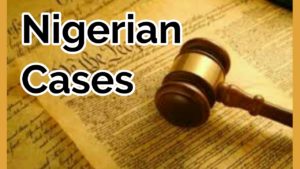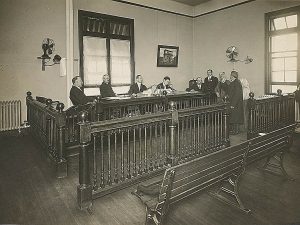The case of Adegbenro v Akintola and Another – [1963] 3 All ER is one of the numerous Nigerian cases where the Supreme Court of Nigeria was compelled to interpret the provisions of the law brought before it. The case was decided by Ademola, C.J.F, Brett, Taylor and Bairaman F.J.J on the 7th of July, 1962. It all started at the high court of Western Nigeria, which made reference to the Federal Supreme Court of Nigeria on the validity of the exercise by the Governor of western Nigeria of his power to remove the premiere of Western Nigeria from office. The facts, issues and decision of the Supreme Court in Adegbenro v Akintola are stated below.

- Also read:
How to become a successful lawyer: 7 successful lawyer qualities you need - Awolowo v Federal ministry of internal affairs
Facts of Adegbenro v Akintola
Below are the facts of the case of Adegbenro v Akintola:
The plaintiff brought an action against the first defendant for a declaration that there was no right of the first defendant to relieve the plaintiff from his office as premiere of Western Nigeria in the absence of a prior decision by the Western house of Assembly, reached on the floor of the house, to the effect that the plaintiff no longer command majority of the members of the house. He therefore sort an injunction by the court to stop the first defendant from relieving him of his office.
When the first defendant came to court, he claimed to be acting upon a letter signed by majority of the house of Assembly, stipulating that the plaintiff be removed from the office of the premiere of western region and that the second defendant should be appointed into the office. Thereupon, the plaintiff obtained an order to join the second defendant in the action. He also obtained an injunction restraining the defendants from appointing anyone into his office until he has resigned.

Conversely, the two defendants filed a joint defence, claiming that the removal of the plaintiff from his office was valid. The also sort an injunction restraining the plaintiff from acting as the premier of western Nigeria.
The plaintiff augured that with the basis of the constitution itself, a premier may be removed from his office on a resolution by the house of Assembly only. He also contended that section 33(10) is an attempt to express in writing the constitution convention of the English constitution and therefore, it’s interpretation should be based on the way the convention had worked historically and on the stage of revolution it has reached when it was embodied in the constitution of Nigeria (1960).
Reference was made to the difference of the wordings of section 33 (10) and of section 33 (2), which deals with the appointment of the premier and who stipulates that the governor should appoint any member of the house who “appears to him to likely to command majority of the support of members of the house.” In this regard, it was contended that where the premier is defected in the house, the event is certain, section 33 (10) allows the discretion only when the proceedings of the house are confused, since the concept of “likelihood” was omitted from that section.
The plaintiff was of the opinion that he can be removed from his office only when it has been determined in the floor of the house of Assembly.
Must read: Are lawyers liars? The truth about whether lawyers are liars or not
Issues raised in Adegbenro v Akintola
- Can the governor validly exercise power to remove the premier from office under section 33 subsection 10 of the constitution of western Nigeria without prior decision or resolution on the floor of the house of Assembly showing that the premier no longer commands the support of majority of the members of the house of Assembly?
- Can the governor validly exercise power to remove the premier from office under section 33 subsection 10 of the constitution of western Nigeria on the basis of any material or information extraneous to the proceedings of the house of Assembly?
Recommended: Countries with the greatest human capital flight
Decision of the Supreme Court in Adegbenro v Akintola
In response to the first issue, the Supreme Court held that the governor cannot validly exercise the power to remove the premier from office under section 33(10) of the constitution of western Nigeria, except in consequence of proceedings of the floor of the house, whether in shape of vote of no confidence or in defect of a major measure or a series of defeats on measure of some important showing that the premier no longer commands support of majority of the members of the house of Assembly.

In the dissenting judgement of Bairaman F.J.J, he unequivocally agreed that “while section 33(10) of the constitution of western Nigeria lays that a condition for the exercise by the governor of his power of dismissing a premier, it does not prescribed the matters to which the governor is to have regard for in determining whether the conditions has been satisfied.” He went further to state that “the wordings of section 33 (10) of the constitution of western Nigeria does not entitle the court to hold that the governor must in every case look to the proceedings of the house of Assembly, and to no other source of information, before coming to and acting on the conclusion that the premier no longer commands the support of majority of members of the house of Assembly.”
The court stated that based on the answer to the first issue, there was no need to answer the second issue before the court.

Edeh Samuel Chukwuemeka, ACMC, is a lawyer and a certified mediator/conciliator in Nigeria. He is also a developer with knowledge in various programming languages. Samuel is determined to leverage his skills in technology, SEO, and legal practice to revolutionize the legal profession worldwide by creating web and mobile applications that simplify legal research. Sam is also passionate about educating and providing valuable information to people.
This is good